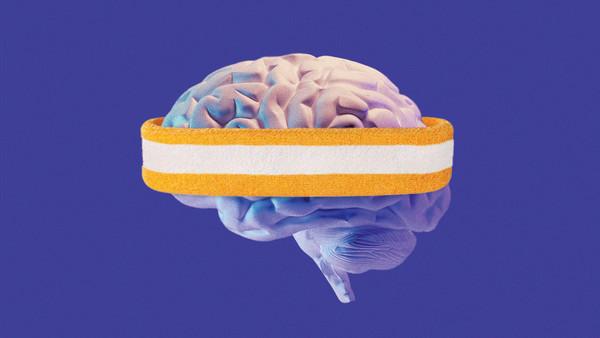How Do Strong Muscles Keep Our Brain Healthy?
Curated from: technologyreview.com
Ideas, facts & insights covering these topics:
8 ideas
·2.86K reads
28
Explore the World's Best Ideas
Join today and uncover 100+ curated journeys from 50+ topics. Unlock access to our mobile app with extensive features.
Brain And Muscles: Two Constant Conversationalists
We’ve often thought about muscle as a thing that exists separately from intellect—and perhaps that is even oppositional to it, one taking resources from the other. The truth is, our brains and muscles are in constant conversation with each other, sending electrochemical signals back and forth. In a very tangible way, our lifelong brain health depends on keeping our muscles moving.
32
574 reads
The Skeletal Muscle’s Messengers: Myokines
Skeletal muscle is the type of muscle that allows us to move our body around; it is one of the biggest organs in the human body. It is also an endocrine tissue, which means it releases signaling molecules that travel to other parts of your body to tell them to do things. The protein molecules that transmit messages from the skeletal muscle to other tissues—including the brain—are called myokines.
32
469 reads
The Muscle-Brain Cross-Talk
Myokines are released into the bloodstream when our muscles contract, create new cells, or perform other metabolic activities. When they arrive at the brain, they regulate physiological and metabolic responses there, too. As a result, myokines have the ability to affect cognition, mood, and emotional behavior. Exercise further stimulates what scientists call muscle-brain “cross talk,” and these myokine messengers help determine specific beneficial responses in the brain. These can include the formation of new neurons and increased synaptic plasticity, both of which boost learning and memory.
34
359 reads
Muscles: Survivors Themselves And Supporters Of Others
In young muscle, a small amount of exercise triggers molecular processes that tell the muscle to grow. Muscle fibers sustain damage through strain and stress, and then repair themselves by fusing together and increasing in size and mass. Muscles get stronger by surviving each series of little breakdowns, allowing for regeneration, rejuvenation, regrowth. As we age, the signal sent by exercise becomes much weaker. Though it’s more difficult for older people to gain and maintain muscle mass, it’s still possible to do so, and that maintenance is critical to supporting the brain.
33
307 reads
Muscles, Learning And Memory
Even moderate exercise can increase metabolism in brain regions important for learning and memory in older adults. And the brain itself has been found to respond to exercise in strikingly physical ways. The hippocampus, a brain structure that plays a major role in learning and memory, shrinks in late adulthood; this can result in an increased risk for dementia. Exercise training has been shown to increase the size of the hippocampus, even late in life, protecting against age-related loss and improving spatial memory.
35
288 reads
Muscles, Neuropathy And Neuroprotection
Further, there is substantial evidence that certain myokines have sex-differentiated neuroprotective properties. For example, the myokine irisin is influenced by estrogen levels, and postmenopausal women are more susceptible to neurological diseases, which suggests that irisin may also have an important role in protecting neurons against age-related decline.
31
277 reads
Muscles Don’t Matter Just To “MuscleBrains”, But To Brains Too
Studies have shown that even in people with existing brain disease or damage, increased physical activity and motor skills are associated with better cognitive function. People with sarcopenia, or age-related muscle atrophy, are more likely to suffer cognitive decline. Mounting evidence shows that the loss of skeletal muscle mass and function leaves the brain more vulnerable to dysfunction and disease; as a counter to that, exercise improves memory, processing speed, and executive function, especially in older adults. (Exercise also boosts these cognitive abilities in children.)
33
266 reads
Orandum est ut sit mens sana in corpore sano.
(A man should pray for a healthy mind in a healthy body.)
DECIMUS JUNIUS JUVENALIS
35
324 reads
IDEAS CURATED BY
CURATOR'S NOTE
There’s a robust molecular language being spoken between our muscles and our brain. Exercise helps keep us fluent in that language, even into old age.
“
Xarikleia 's ideas are part of this journey:
Learn more about exerciseandfitness with this collection
How to make sustainable choices in everyday life
Identifying ways to reduce waste and conserve resources
Understanding the impact of human actions on the environment
Related collections
Similar ideas
6 ideas
The Science Behind Muscle Growth
medium.com
7 ideas
6 ideas
5 tips to keep your brain healthy
mayoclinichealthsystem.org
Read & Learn
20x Faster
without
deepstash
with
deepstash
with
deepstash
Personalized microlearning
—
100+ Learning Journeys
—
Access to 200,000+ ideas
—
Access to the mobile app
—
Unlimited idea saving
—
—
Unlimited history
—
—
Unlimited listening to ideas
—
—
Downloading & offline access
—
—
Supercharge your mind with one idea per day
Enter your email and spend 1 minute every day to learn something new.
I agree to receive email updates

